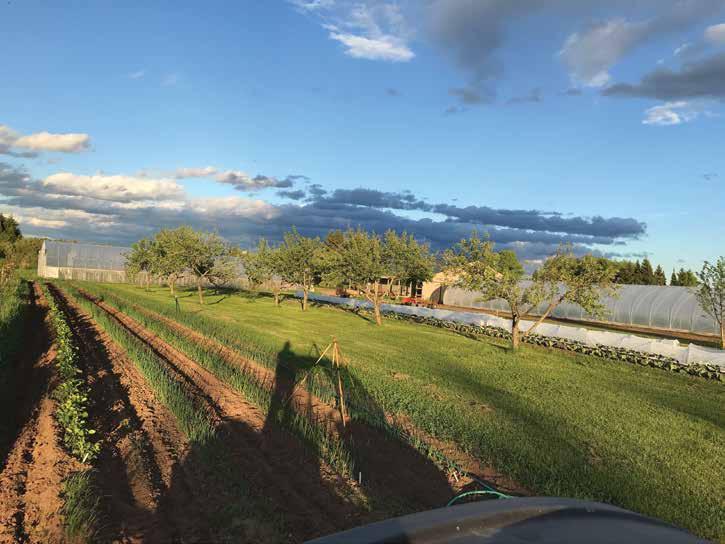
4 minute read
‘Living the dream’ on the Brule River Farm
Local farmer reflects on 40 years on Wisconsin homestead
By Abigail Blonigen
"Rightnow is probably the best time in our lives,” said Sue Ann Dumke, co-owner of the Brule River Farm, north of Brule, Wisconsin.
Dumke had always dreamed of living in northern Wisconsin. She fell in love with its beautiful woods and lakes by spending summers at her grandparents’ home on Webb Lake in Northwestern Wisconsin.
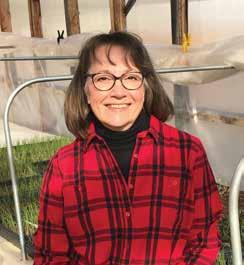
Growing up in Dundee, Illinois, outside of Chicago, Dumke described herself as a suburban girl whose only experience with farming was the garden her father kept in the backyard. Despite this, she had a goal of living a sustainable, self-sufficient lifestyle involving growing her own food.
Dumke’s husband, David, is from a family of farmers and shared the same dream. The two met in Dundee through community theater.
“When we got married, one of our big connections was that we both wanted to live in northern Wisconsin,” Dumke said.
The couple purchased the land that would become Brule River Farm in 1978, building it up year after year into the successful business it is now.
“We found this beautiful combination of field and forest near Lake Superior and the Brule River. For us it was this perfect place, and we still feel that way.”
The farm sits on 111 acres, 76 of which are wooded and used for firewood and maple syrup. The remaining 35 acres consist of a hay field that the neighbor maintains in exchange for manure and roughly seven fenced-in acres for farming.
The farm began as more of a garden, producing enough to feed the Dumkes and their three children. In the ’90s, they began doing small farmers markets as a family as a way for the kids to make some extra money.
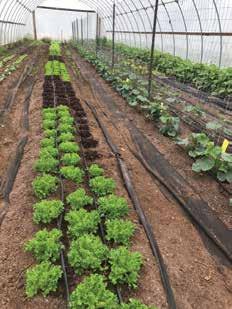
“Actually, they really got all the money from those days,” Dumke joked.
The year 2000 was a turning point for the farm. Their farmers markets with the kids showed there was a demand for locally grown, garden fresh food. The Dumkes saw this potential and began investing in the farm to increase production and become more efficient.
Weather is one of the biggest challenges for farmers, especially with Wisconsin’s short growing season, so the Dumkes began to look at ways to mitigate the unpredictable elements.

This involved investing in three high tunnels — big hoop houses 12 feet high, 96 feet long and 26 feet wide. These structures are more weather controlled, so they use them to grow more sensitive crops like tomatoes, peppers and melons.
The Dumkes have also invested a lot of time and energy into soil management, as the farm sits largely on red clay from Lake Superior.
“We really have to do a lot of soil amending,” Dumke said. “We are basically making soil that we are building up on top of the clay.”
The next turning point came in 2008 when Dumke made the decision to leave her job to pursue farming full time. Up until that point, both Sue Ann and David had been working
Environmentally conscious growing practices including compostable containers
•Classic &hard-to-find bedding plants, including awide variety of succulents
•Heirloom &traditional tomatoes, vegetables &herbs
•Custombaskets &container designs
•Pollinator garden plants
•Manyperennials, fruits, organically grownvegetables

Located North of Duluth offLismoreRoad
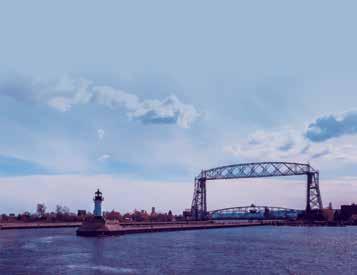
Soils/Dirt •Garden Blend/

Dirt
Dirt day jobs during the week and hitting up farmers markets on the weekends.

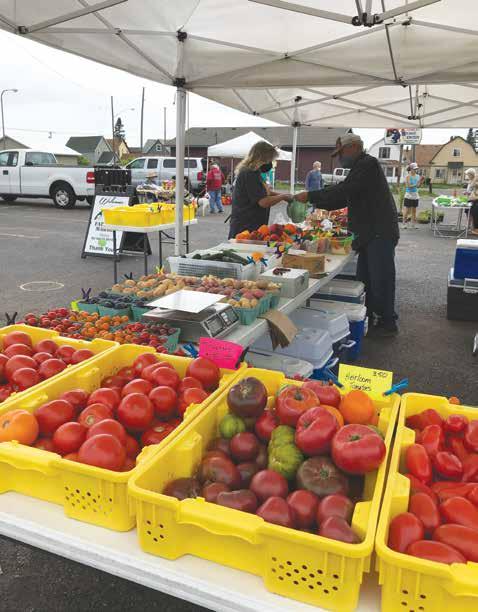
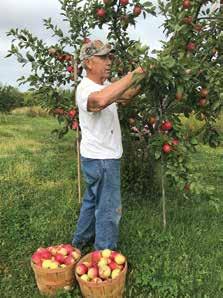
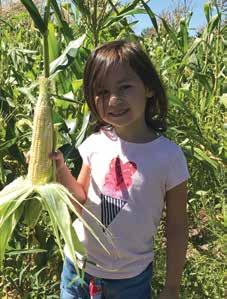
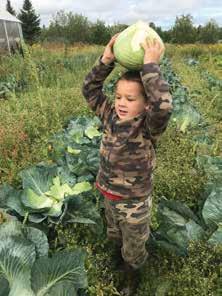
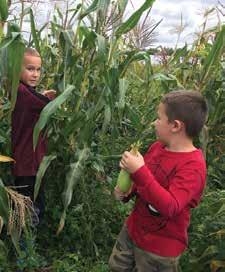
Dumke had been working as a special education assistant for the Superior School District, so she had summers off, but she would have to go back to work in the height of harvesting season.
The Dumkes’ oldest son, Jacob, had a severe disability due to an illness he suffered as an infant, and in 2008 he was admitted to Solvay Hospice House in Duluth, which was another consideration for Dumke leaving her job.
“I had Jacob and the farm and my job, and I just needed to be my own boss to be able to prioritize my time so that if I needed to be with him, I could just drop everything and be there.”
Retiring was difficult for Dumke, as she loved her job and the people she worked with, but she was confident that it was a good business move and that they could produce enough to replace her income.
The farm has slowly grown every year since then, but has yet to max out on production. They grow several varieties of tomatoes and peppers, melons, and typical garden vegetables for the area: cucumbers, beans, peas, squash, cabbage, broccoli, cauliflower and carrots.
The trees play a big role, too; they have apple trees for fruit and cider, maple trees for syrup and they use logs from the woods to grow mushrooms.
“Working on the farm can be all-consuming,” Dumke said. “You can start when it gets light out and quit when it’s too dark to see the difference between the weed and the carrot, and there’s still more to do.”
The pace slows in the winter months, but there is always something to be repaired, cleaned, canned or stored.

“You look at farming, especially vegetable farming, thinking it’s six months through the spring and summer and fall, but it takes much of November to just get everything cleaned up and put away,” Dumke said.
Dumke finds the hard work fulfilling and rewarding and is grateful for the community’s support of the farm to keep the couple doing what they love.
“We are living the dream right now,” she said. “It’s this tremendous sense of gratitude that we were able to acquire this land, that we ended up in this one spot in the whole universe where we feel like we were meant to be when we moved here 43 years ago.”
You can find Brule River Farm products this year at the Barker’s Island Farmers Market, open Saturdays from 9 a.m. to noon, May 22 through Oct. 30 and the Superior Downtown Farmers Market, open Wednesdays from 11 a.m to 2 p.m., May 26 to Oct. 27. You can also follow their Facebook page — Brule River Farm. D










